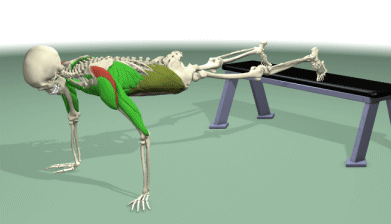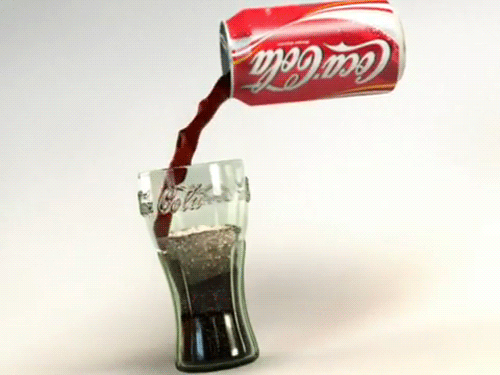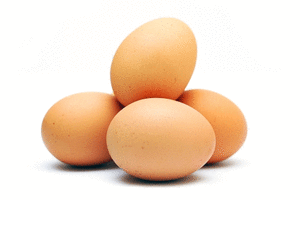




THE FITNESS
DIGEST.
Why You Should Eat :-
A Healthy Breakfast
Breakfast is the most important meal of the day. Breakfast provides you with the energy and nutrients that lead to increased concentration.
Studies show that breakfast can be important in maintaining a healthy body weight.
Hunger sets in long before it's time for lunch, but because it's not convenient to eat properly, many people who have not eaten breakfast snack on foods that are high in fat and sugar.
People who skip breakfast are unlikely to make up their daily requirement for some vitamins and minerals that a simple breakfast would have provided.Breakfast provides energy for the activities during the morning and helps to prevent that mid-morning slump.
Tips on Eating a Quick and Healthy Breakfast
Pick 2-3 foods, including at least one from each of the following food groups:-bread and grain (i.e.cereal, toast, muffin)-milk and milk product (i.e. low-fat yogurt, low-fat milk)-fruit or vegetable group (i.e bananas, apples, carrots)
Pick up portable breakfast items when at the grocery store. You should buy foods like fruit, low-fat yogurt, whole grain breakfast bars, or granola bars for those mornings when you have to eat breakfast on the go.
Replace or accompany that morning cup of coffee with a glass of orange juice or milk.
Make an omelette! You can shorten preparation time by chopping up your vegetables ahead of time.
Get up 15 minutes earlier. You can fix and consume a healthy breakfast in 15 minutes or less.
Plan ahead to eat breakfast. This means you should decide what you are going to eat for breakfast before the next morning. You can save time by putting out the box of cereal or cutting up some fruit the night before.
A Healthy Lunch
As the main daily meal in dozens of countries around the world, lunch holds a place of primary cultural importance. In 9-to-5 environments, the midday meal isn’t always such a big deal, but making time for a healthy lunch can pay off both mentally and physically.
The Benefits
Eating in the middle of the day, several hours after breakfast, re-energizes your body and can raise blood sugar levels when focus and concentration are flagging. If you’re feeling sluggish, eating even a small lunch can renew your energy and help you feel refreshed and ready to take on the next several hours. In addition, eating lunch keeps your metabolism active, especially if you have a moderately sized meal and a snack before and afterward. “Extended periods of starvation between large meals creates gaps which keep metabolism from staying active,”
Skipping Lunch
It’s common to want to skip lunch if you’re trying to lose weight or cut calories, but that strategy rarely works. According to the Weight Control Information Network, people who regularly skip meals tend to weigh more than people who eat often throughout the day. Skipping lunch can rev up your appetite later, causing you to overeat or choose foods that have poor nutritional values.
Considerations
Eating any type of meal for lunch can help keep your metabolism active and your body healthy, but some foods pack more of a nutritional punch than others. Combine complex carbohydrates with lean protein to form a concentrated, long-lasting source of energy.
Examples include nonfat yogurt and granola, a lean turkey sandwich on whole grain bread, or low-fat cottage cheese with fruits and vegetables. Ideally, a healthy lunch should offer a balance among the five main food groups: grains, vegetables, fruits, lean proteins and dairy.
A Healthy Dinner
Eating a healthy dinner will provide you with the energy needed to stay awake for your late night work.Eating a healthy dinner at the right time will hold off late night junk food cravings while you are at it
Without food in your system, stress hormones will kick in to keep you going but at a high cost--you'll be exhausted later.
Eating a healthy dinner will help you maintain your weight. When you make a habit of missing meals, your body starts conserving calories and your metabolism slows down.
Tips on Eating a Quick and Healthy Dinner
Try to stay away from coffee and candy. Neither one will give you sustained energy.
For sandwiches, burritos, and pizza, choose either cheese or meat, but not both.
Eat dinner Optimally at 7.pm.
Dinner needs to be lighter than lunch, but just as nutritive and balanced. Do not skip this meal. It keeps your system ticking for the next twelve hours or so.
Save your time! Cook for more than one meal.
When you have an hour to make something special, double the recipe so you'll have enough to refrigerate or freeze for another dinner !!!!!
Why Are Healthy Snacks Important?
Fruit and cheese can be a healthy snack.
Snacking is an effective way to fit extra nutrients into your diet and prevent overeating at mealtimes. 24 percent of daily calories may come from snacks. With snacking providing this much of the day's calories, choosing healthy options is crucial.
Snacking helps keep you from getting overly hungry in between meals and then overeating at your next meal. So next time you start to feel hungry a couple hours before lunch or dinner, don't try to wait until the meal. Instead, eat a small healthy snack to tide you over. Combine a carbohydrate-rich food like whole grains, fruits or vegetables with protein foods like nuts or dairy products for the most filling snacks.
Keeps Blood Sugar Levels Steady
Healthy snacking helps keep your blood sugar levels even, especially if you eat a consistent amount of carbs at each meal or snack. This is especially helpful for diabetics, but also beneficial for people without diabetes, since large spikes and dips in blood sugar levels may make insulin resistance, Type 2 diabetes, obesity, heart disease and high blood pressure more likely over time.
Provides Nutrients
As long as you choose nutritious snacks, snacking will also help you meet your nutrient needs for the day. Although it's fine to have a less-than-healthy snack every once in a while, most of your snacks should consist of nutrient-dense foods like fruits, vegetables, whole grains, low-fat dairy and nuts or seeds.
Considerations
Don't snack right before a meal, and only eat a snack if you are truly hungry. Snacking out of boredom or for other emotional reasons isn't healthy and can lead to overeating and weight gain. Most snacks should be around 100 calories, but if you need to use a snack in place of a meal, eat a slightly larger snack containing about 250 calories.


Physical fitness Disclaimer and Waiver of liability:
Exercises are not without their risks and the exercise programs in this website may result in injuries.Any person who undertakes these exercises does so at their own risk.To reduce the risk of injuries ,you should consult your doctor before beginning these or any other exercise programs.As with any exercise program ,if at any point during your workout you believe conditions to be unsafe or begin to feel faint or dizzy,have physical discomfort or pain, you should stop immediately and consult a physician.
Daily exercise for Working women.
Jumping Jacks. . Effective workouts.
Group exercise and its benefits.
Calf raises-free style . Push ups.
Tummy exercises. Hoola Hooping .
Fitness Motivational tips. Barbell Squauts.
The myths of spot reduction. Leg press.
Standing calf raises. Concentration curls.
Bench (Tricep) dips.. One arm dumbbell rows.
Pec deck Flye. Fr0nt dumbbell raises. Glute ham raise.
Seated leg curl . Close grip bench press .
.

Please keep comments positive and constructive.
Help the WEBSITE by reporting inappropriate comments to thefitnessdigest@gmail.com . Inappropriate comments may be reported and/or removed.